Our folks in Rio de Janeiro: How Ukrainian startups will impress Web Summit‘23 visitors
Facial recognition, anomaly detection in businesses, and seven more interesting domestic developments
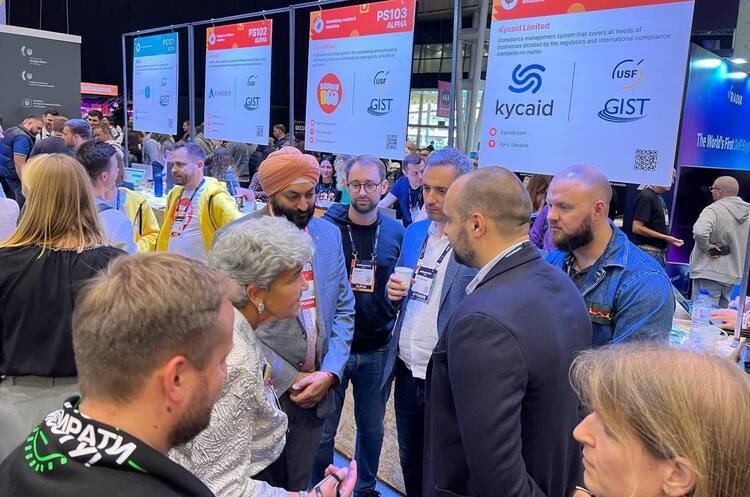
On 1st May, the Web Summit kicks off in Brazil. Ukraine debuted with its pavilion at this world's largest technology conference in 2021. Last year, despite the war, our country did not miss the Web Summit: 24 domestic startups presented their developments there.
This year, around 500 investors, 750 startups, and 15,000 visitors are expected at the summit in Rio de Janeiro. Nine Ukrainian teams will also attend the conference. What developments are they bringing? What is interesting about these startups? How will they captivate visitors? Mind has gathered the main facts.
Kycaid
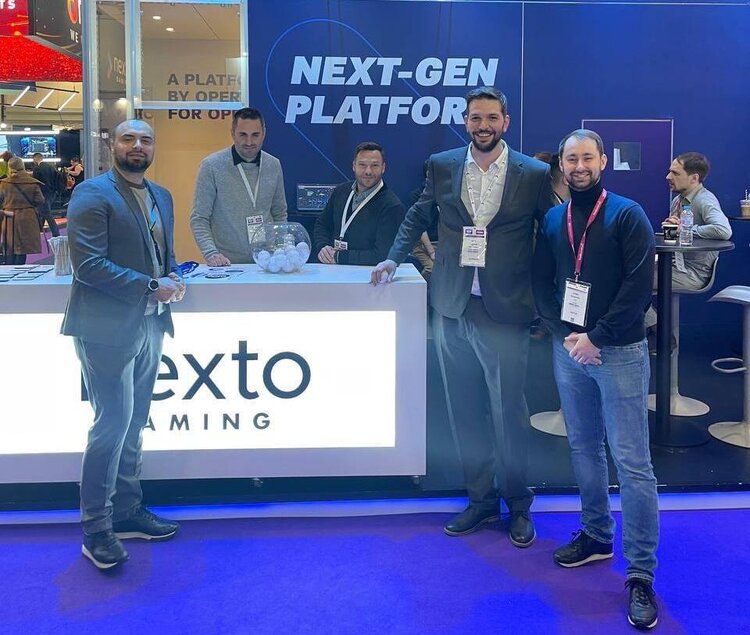
This company provides online compliance services for identity verification. In other words, an automated system recognizes a person's face and identifies them through open global databases. Artificial intelligence assists with this process. "When you come, for example, to a bank, you go through personal verification with a manager. But since the entire business has long been moving online, there are areas where online verification has already been integrated. Monobank in Ukraine is a good example. It was one of the first to introduce online verification when registering an account," explains Kycaid founder Mykola Mashkovsky.
The client pays for each verification. The startup's services are mainly used by clients in the financial, gaming, and marketplace industries. Kycaid is expanding in Ukraine, Brazil, Africa, and Kazakhstan. There are clients who work worldwide, so the startup also provides services to users in Europe and Asia. "For example, the same crypto – there are many users from the Asian market, and there are small clients in Turkey," clarifies the founder.
The project was self-funded. Over the two years that the founders were building the product, they invested around $300,000. "We quickly got our first clients and started living off our own revenue. We began to develop precisely at the expense of operational cash flow," says Mashkovsky. Currently, the startup is looking for strategic partners who can help increase their business.
Orderry
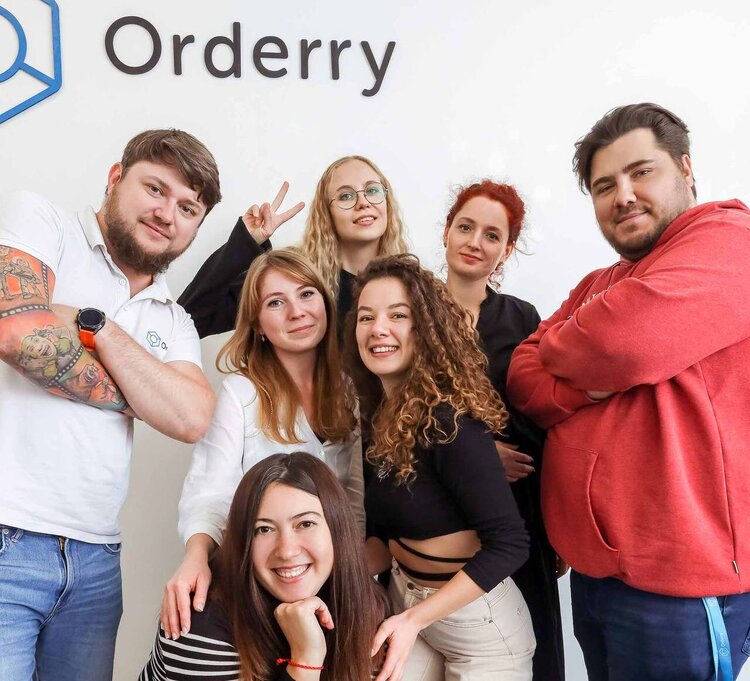
The team is developing a cloud platform for managing small and medium-sized businesses in the service and trade industries. The service combines tools for digitising businesses and has web and mobile applications. The company is developing two products: RemOnline for customers in Ukraine, Eastern Europe, and Central Asia since 2013, and Orderry for markets in North and Latin America since 2020.
At Web Summit 2023 in Brazil, the company plans to present the localization of its product Orderry in Portuguese. The startup's clients are small and medium-sized businesses, including service centres, repair shops, car service stations, tailors, cleaning services, beauty salons, and more. From its founding until its first seed investment, the startup was self-funded. The company says that the amount of reinvested revenue during this time is several million dollars.
The first seed financing from private Ukrainian investors amounted to $150,000. Then, in 2022, Orderry received grants for product development: funding, mentoring, and product support from Google for Startups Ukraine Support Fund, as well as assistance from one of Europe's largest data centres under the Scaleway Startup Programme. Currently, the total amount of grants received is approximately $150,000.
Anna Maly
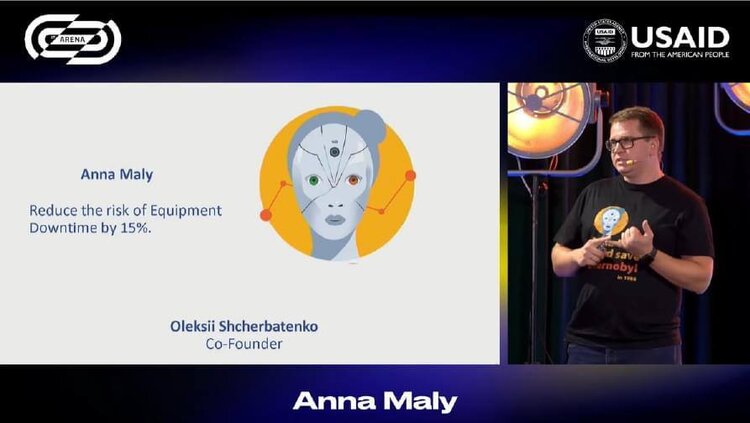
This is a solution for detecting anomalies in production plants across different industries. The development is based on artificial intelligence to ensure reliable and fault-free equipment operation. Anna Maly works by studying Big Data from sensors, and in the event of changes in equipment operation, the system signals and warns of deviations.
Developers claim that the solution can identify patterns and trends at early stages that a person cannot detect. Therefore, defects can be isolated in advance with minimal costs: cleaned, loaded, and replaced individual parts. The risk of equipment failure is reduced, and costs for restoration are minimised. "It's a pity we only did this in 2022, because Anna Maly could have saved Chornobyl in 1986," says IT-Enterprise, the company that developed the solution.
The potential clients of the company are medium and large industrial enterprises in the food, chemical, pharmaceutical, machinery, aerospace, and metallurgical industries. Among the companies already using the solution are Interpipe and Astarta-Kyiv. The company does not disclose the investment amount, but notes that it took approximately six months to develop the prototype.
Spendbase
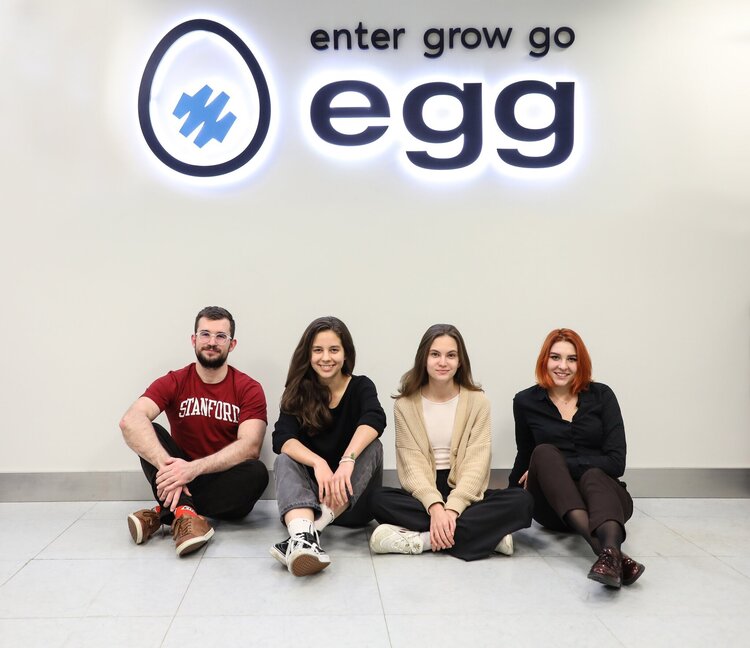
This service helps companies manage SaaS subscriptions and reduce infrastructure costs. "Directors of companies with 50 or more employees find it difficult to control SaaS subscription processes: how many subscriptions they have, which employees use them regularly, and which ones don't use them at all. This costs a lot of money and time.
Spendbase helps automate these processes and reduce companies' overall infrastructure costs," the company explains. Using the solution, managers can view available subscriptions, compare costs for the month or year, and delete unnecessary accounts that are not used. There is also the ability to assign each employee to a specific product, such as Microsoft or Google Workspace.
Spendbase was founded in 2022 by Ukrainian entrepreneur Andriy Alekseyenko. He says the product is suitable for medium and large companies. "However, there are no clear limitations, as even companies with 15 employees already need to effectively manage subscriptions and infrastructure," adds Alekseyenko.
The founder does not disclose the amount of investment in the project. However, he notes that they are a bootstrap startup (developed using their own funds). Currently, the team is working on developing a unit economy to raise investments during the year.
FuelWell

FuelWell is a device for diesel and petrol engines that allows reducing fuel consumption by 10-20% depending on the type and class of the vehicle. The device reduces the amount of harmful emissions: the catalytic process breaks carbon bonds in the fuel, which burns more completely. According to FuelWell founder Sergiy Dubinevych, the technology is ready for mass production. The team conducted nearly 70 pilot tests over 2.5 years before the full-scale launch. At that time, the startup was starting a pilot project with MHP. However, it was stopped.
From the beginning, FuelWell aimed at the B2C segment. However, the team revised its strategy and focused on large and medium-sized companies. The startup is interested in those who have trucks or agricultural equipment of the first and second classes with a high mileage and fuel consumption volume.
Over $500,000 was invested in the development. The founder funded the project in all previous years. In 2023, FuelWell received a grant for dual-use projects to increase the country's defence capabilities and post-war reconstruction from the USF.
Mosqitter

The main product of the startup is a device-trap to fight mosquitoes outdoors. The development emits heat and releases odours and carbon dioxide, which lures mosquitoes inside the gadget where they die. The installation works with the help of a control unit and separate software algorithms developed for it. The power source is electricity.
The startup was founded by Anastasiya Romanova. Olga Diachuk joined the management team at the implementation stage of the idea. The total initial investment amounted to about $100,000. "For the start, we reinvested from existing businesses, also we engaged the team's resources, and quite quickly began reinvesting funds from the first sales of the installation into the startup," says Romanova. The startup also received support from grant programs:
- $5000 at the Consumer Electronic Show in Las Vegas (CES 2020);
- $50,000 from USF;
- $5000 at Ukrainian Hub from CRDF Global;
- $20,000 at IT Arena from USF and CRDF Global.
Stripo
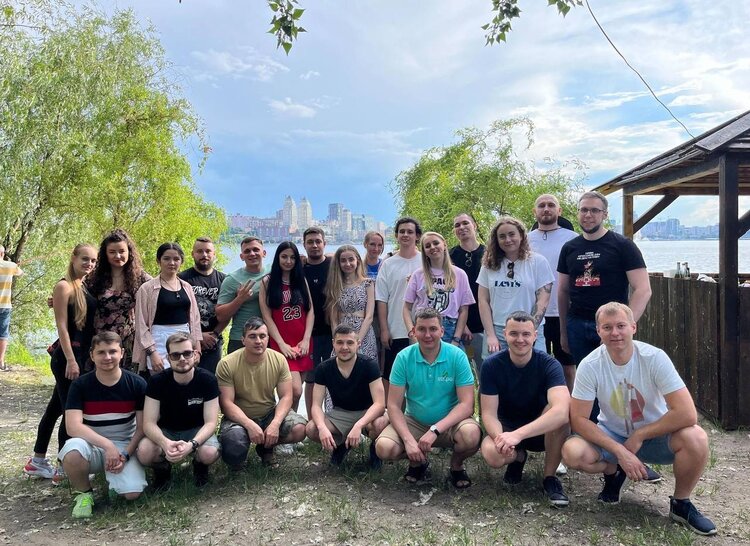
Stripo is a platform for designing emails of varying complexity without coding skills. The service offers over 1,300 ready-made templates. The company claims that the development helps to automate the process of creating letters and save up to 60% of time.
The founder of the startup is Dmytro Kudrenko. It took three months to create an MVP, and the project was released in February 2017. However, the company was only able to earn money four years later – in 2021. Before that, they invested their own $500,000. At the beginning, expenses reached $20,000 per month, and the average check was $10 per month. Now the company grows by approximately 3% per month, but they want to return to the previous 10% figure. Currently, the platform has 750,000 registered users in 216 countries around the world. And among the company's clients are 245 big brands: Tesla, HBO, Disney, and more.
UBOS
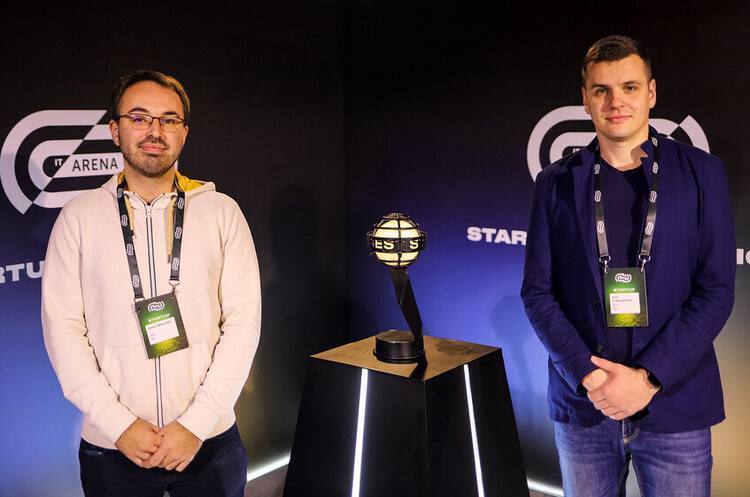
UBOS is a low-code ecosystem that allows for faster software development and increased efficiency for engineers through visual programming methods. UBOS Director of Development Yuriy Kostiuchenko explains that engineers can work three to seven times more efficiently depending on the product being developed. According to its developers, the platform can save not only time but also development costs – up to 60% of the total product budget. To use UBOS, basic programming skills are required, such as knowledge of the basic principles of working with databases and JavaScript.
The company works with clients from Israel and the United States, and UBOS plans to enter the Ukrainian market. At the same time, Kostiuchenko notes that the startup does not plan to conquer any particular markets or niches, but instead offers proposals for companies to develop their own projects based on the UBOS product.
The founder of the startup is Andriy Bidochko, who invested over $200,000 of his own money into the product's development. Last year, the startup represented Ukraine at Web Summit in Lisbon.
Uspacy
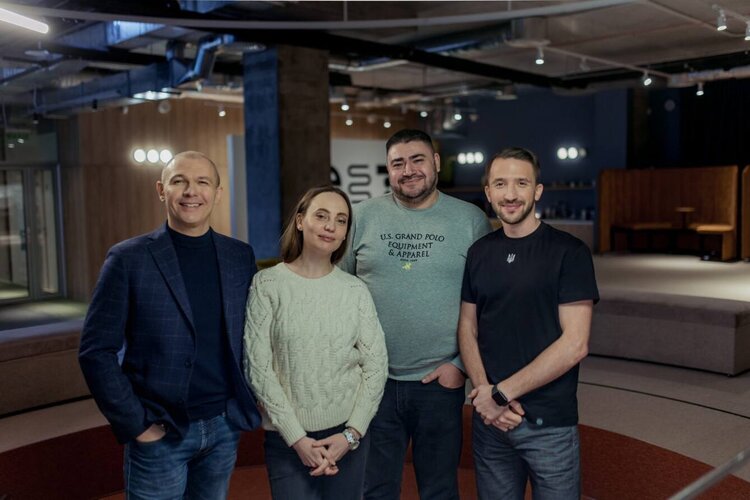
The team has developed a single workspace for organising daily processes in companies. The solution has three blocks: CRM for sales management and control, company structure management and internal process configuration, resource allocation for all participants in the workflow and control of task deadlines.
The startup was founded by former director of Ukrainian "Bitrix24" Dmytro Suslov. The product is aimed at small and medium-sized businesses regardless of the industry. Ukraine was the first market for Uspacy, where it already has over 1,000 customers. The company uses the freemium model. According to Suslov, the company offers a free package with enough features for a small team without deep requirements. For businesses that need enhanced functionality, they offer two service plans (with a discount for Ukrainians until the end of the state of war when paying annually): standard (UAH 266 per user per month) and professional (UAH 533 respectively).
Creating the first version of the product cost the company $196,500. So far, Uspacy has not attracted external investment and is being developed on the funds of its co-founders..
If you have read this article to the end, we hope that means it was useful for you.
We work to ensure that our journalistic and analytical work is of high quality, and we strive to perform it as competently as possible. This also requires financial independence. Support us for only UAH 196 per month.
Become a Mind subscriber for just USD 5 per month and support the development of independent business journalism!
You can unsubscribe at any time in your LIQPAY account or by sending us an email: [email protected]


